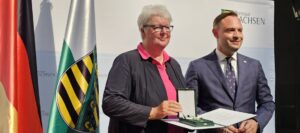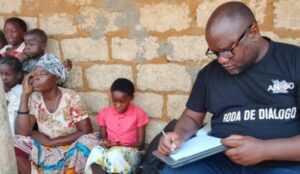 By the Mission Development Office, Province of Lebanon and Syria
By the Mission Development Office, Province of Lebanon and Syria
Dear Partners,
Since October 2023, part of the world’s attention has been focused on the Middle East following the emergence of the armed conflict between Hamas and Israel, a conflict which has spread to the South of Lebanon, the Lebanese population has tried to live against all odds, with hope and resilience, in a deleterious political and security climate.
Although the country has experienced periods of relative calm, sporadic incidents of violence continue to occur. The Lebanese Armed Forces (LAF) strive to maintain order, but the challenges are immense due to daily fighting between Hezbollah and the Israeli Army in the South.
These hostilities have given new impetus to the multidimensional crisis that Lebanon has been experiencing for more than 4 years, with the emergence of a new vulnerable population of displaced people from the South (more than 95,000 people, according to the IOM), the damage to infrastructure and public facilities, the slowdown in tourism which is a key economic sector for the country, and the emigration of many Lebanese are few of the challenges facing Lebanon.
Thus, our country, once nicknamed the “Paris of the Middle East,” is increasingly engulfed in an unprecedented crisis, the outcome of which, at this stage, remains uncertain.
What is certain is that this situation further deteriorates the economy, security, and social climate, reinforcing the vulnerability of populations, particularly the most deprived.
At the economic level, after successively experiencing the collapse of the Lebanese pound against the dollar, a banking crisis that deprived the Lebanese of their money, and hyperinflation, the economic situation is still struggling to recover.
Today, inflation has stabilized at 70%, and the value of the Lebanese pound against the dollar has also stabilized. However, these indicators still remain too negative, and we see that a large part of the population still lives below the poverty line. The World Bank estimates the absolute poverty rate (<$1.90 per day) at 50% of the entire population.
Many Lebanese families manage to live above the poverty line thanks to financial support from the diaspora, particularly from family members who regularly send them money. It is, moreover, these foreign shipments which, with the informal economy, support the general economy of the country because public finances are weakened.
Consequently, the State is not able to ensure decent salaries for its employees and the same is true for the private sector which has been heavily impacted by the crisis. The result is a high rate of unemployment (30%) and increasingly precarious jobs which are pushing the workforce and qualified labor to leave the country.
This economic crisis has a devastating effect on social life. With the explosion of poverty, the middle class has shrunk considerably. Education, health, and other essential services are increasingly inaccessible. Families are struggling to put food on the table and provide basic necessities. The once vibrant social scene has become gloomy as people prioritize survival over leisure.
The prevailing feeling among the Lebanese population is a complex mix of fear and hope; the fear of the unknown, economic collapse, and personal safety is palpable. The daily struggle to survive has affected the mental health and well-being of many people.
In such a situation, international and national NGOs, as well as other civil society organizations, are those who holding the reins of social action in the face of a failed state. We are redoubling our efforts to support the most affected populations by responding to their immediate needs and nurturing their resilience.
Story of Mariette (68-year-old)
 “I came to this center after they told us that we can benefit from the [primary health care centers] near us. I came here with my husband to follow up on diabetes, heart disease, and hypertension with the medical doctor and get our medications. They gave us a warm welcome, and we can access different medical services while receiving basic supplies such as food.
“I came to this center after they told us that we can benefit from the [primary health care centers] near us. I came here with my husband to follow up on diabetes, heart disease, and hypertension with the medical doctor and get our medications. They gave us a warm welcome, and we can access different medical services while receiving basic supplies such as food.
At the beginning of the latest conflict in southern Lebanon, we thought it would be as usual, [lasting] for a few days, maybe weeks, and then it would stop. But when the air strikes intensified, we had to leave our house and farm and move immediately to my relatives in Beirut. I’m a retired teacher, and I rely on our land as a source of income. It is all gone now. The phosphoric bombs reduced everything to ashes.”
What we experience
As the war raged on, the people in the South of the country and the Bekaa Valley faced countless challenges. They witnessed the horrors of conflict firsthand, the loss of lives, the destruction of homes. But they also witnessed the resilience of the human spirit and the unwavering courage of those who refused to be defeated.
Mariette’s journey and many others are a testament to the power of compassion and the unwavering belief in humanity. In the face of unimaginable hardship, they still find purpose and meaning in their lives.
There is a deep hope for a better future and a desire to rebuild the country and other countries in the Middle East because, in some hearts, there is still a determination to overcome adversity. It is also this resilience that drives us on a daily basis in our Mission. This hope and resilience are nourished by an unwavering faith in Jesus the Good Shepherd who remains present in our daily lives. We still believe in peace. Through an intimate relationship with him and through his encounter with the most deprived (vulnerable people, families affected by poverty and violence), our faith is revived, and our hope for a different future is consolidated.
“Keeping love and following the light of the Gospel bring glimmers of hope in the darkness of our times” Pope Francis
We cannot end without expressing our deep gratitude to you, dear partners, who continue to support us. You are like a lifeline that allows us to lift our heads above water and continue swimming in this sea of uncertainty and crises in the hope of reaching the shore as soon as possible.







